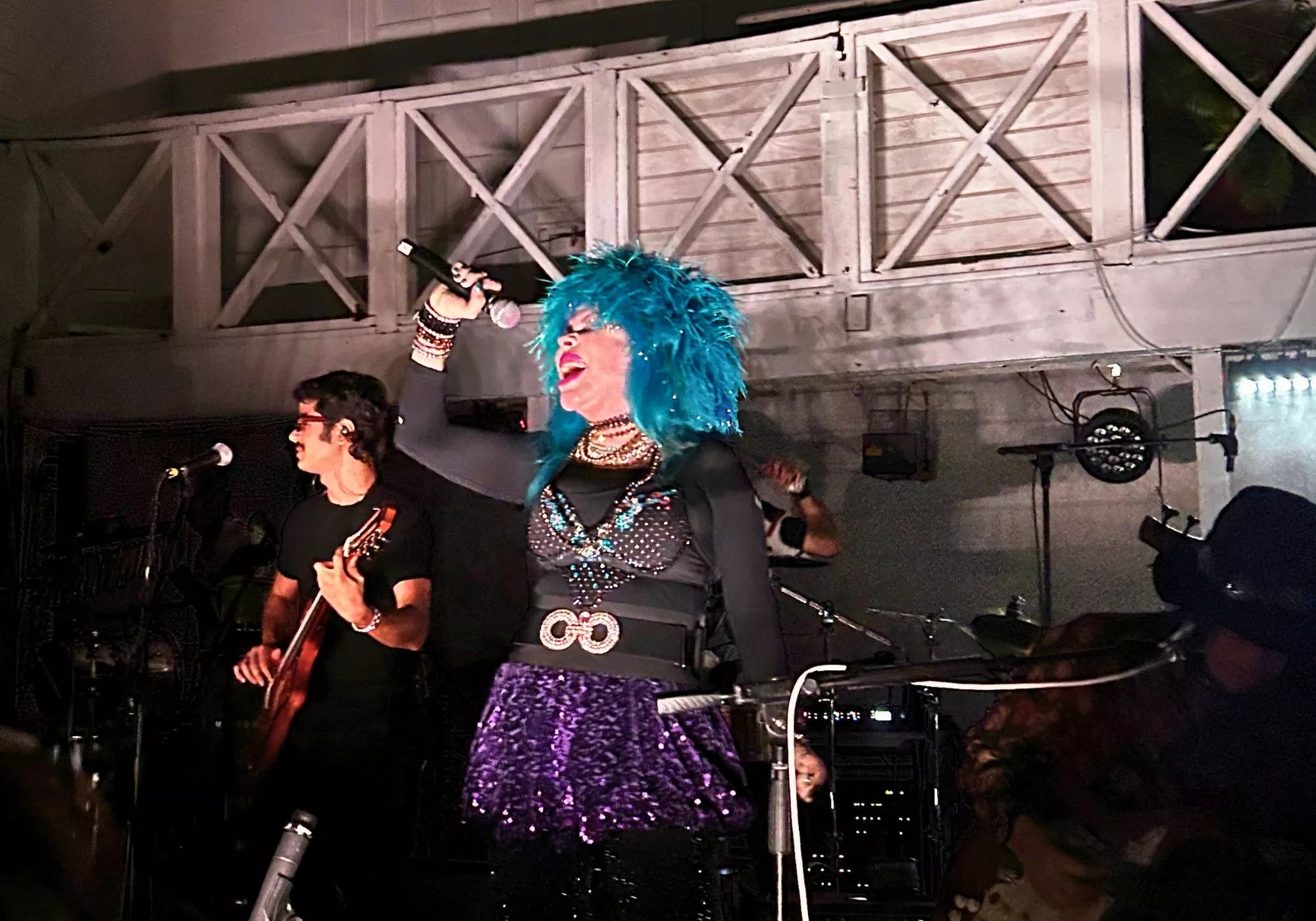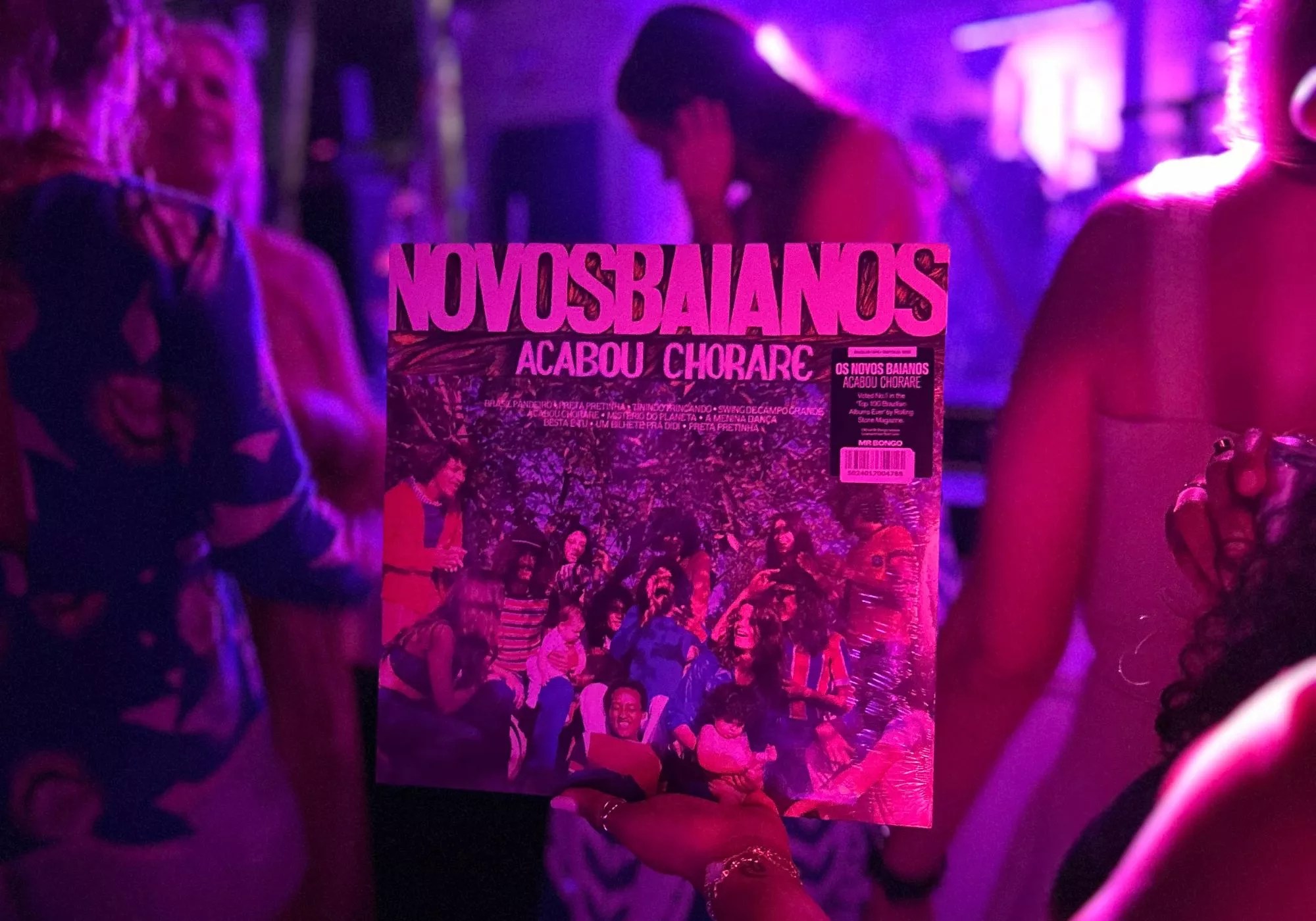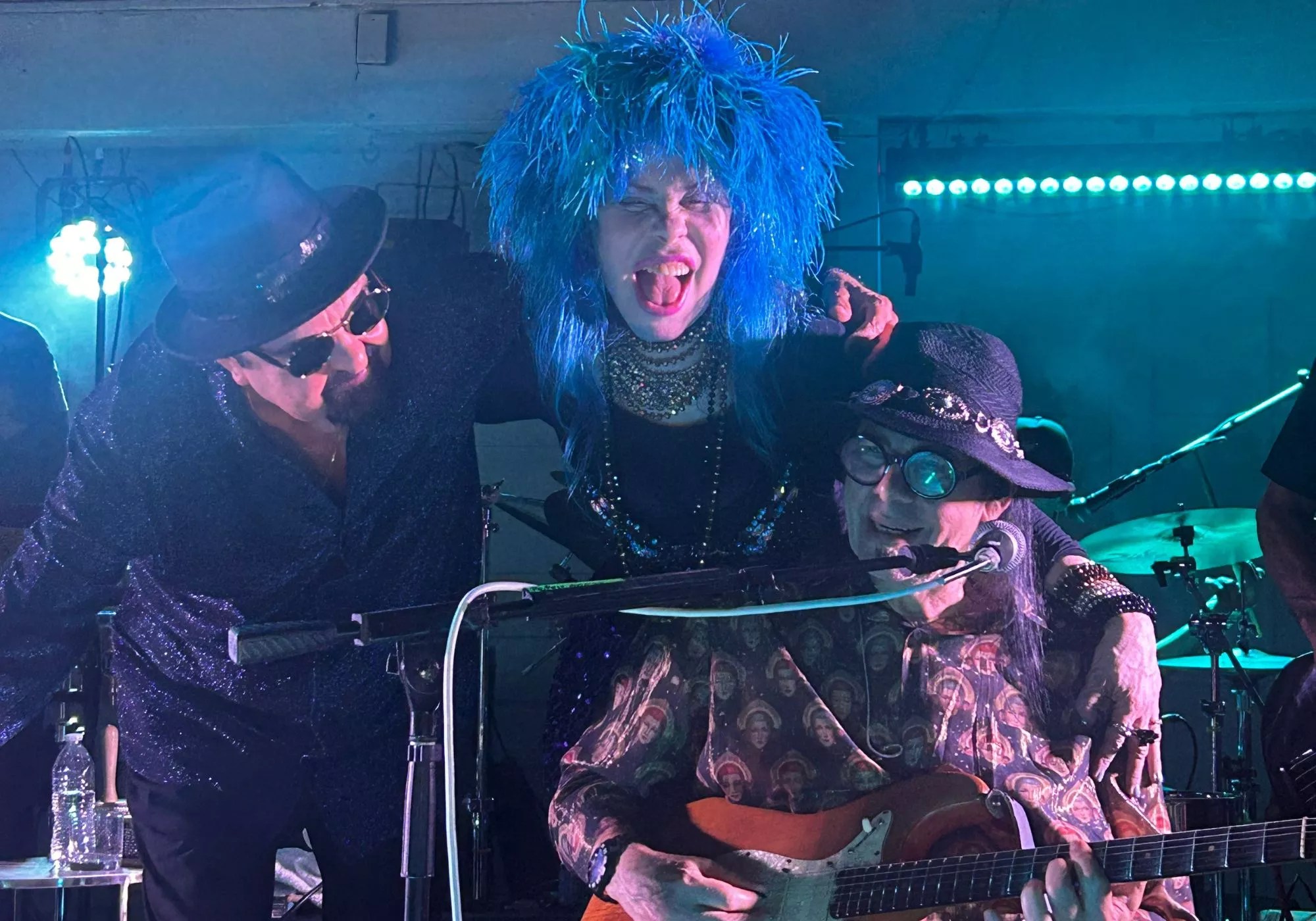
Photo by Gabriela dos Santos

Audio By Carbonatix
Os Novos Baianos brought their samba rock to American soil for the first time to the joy of the thousands of Brazilian and Brazilian-American fans who’ve made a life here. But they didn’t just draw a diaspora: the group’s Saturday night show at ZeyZey was part of Jazz Está Morto (Jazz Is Dead), a concert series produced by Art Don’t Sleep that spotlights legendary Brazilian musicians. The event attracted a multi-ethnic and intergenerational crowd, a living testimony to the band’s ongoing influence. One could hardly believe that the upbeat, rhythmic music emerged from a cultural revolution.
Luiz GalvÁ£o, Baby do Brasil (formerly Baby Consuelo), Pepeu Gomes, Moraes Moreira, and Paulinho Boca de Cantor were just aspiring artists in late 1960s Brazil, a period of cultural repression, consumerism, and state-sponsored nationalism. Inspired by Tropicália, these big-haired samba rockers sought a communal, non-materialistic life. Funny enough, there was even a brief moment when they thought they’d go pro in soccer.
1972 was their breakthrough year with the release of their sophomore album Acabou Chorare. The record was a cultural melding of Brazil’s diverse regional music – frevo, choro, samba – with outside influences like psychedelic rock, jazz, and electronic instruments. Acabou Chorare brought them national recognition and reached the number one spot on Rolling Stone Brazil‘s list of the greatest Brazilian albums of all time.

Fans brought vinyl and memorabilia to have it signed by the band.
Photo by Gabriela dos Santos
Now, the band’s three surviving members – Baby do Brasil, Paulinho Boca de Cantor, and Pepeu Gomes – have brought the batucada to South Florida, where a diverse crowd awaited a once-in-a-lifetime performance. One fan told New Times they drove four hours to get to the venue – and planned to drive four more back – just to see these legends of Brazilian music.
Marcello Bantine, a Brazilian-American DJ, quickly set the mood with a setlist full of iconic throwbacks, from Tim Maia to Os Mutantes to the magnetic Marcos Valle. By the end of his set, a modest-sized crowd had become a shoulder-to-shoulder situation. Regulars at ZeyZey said they’d never before seen the place this packed. Still, the coziness didn’t stop anyone from dancing; even the most poised couldn’t resist the occasional foot tap or head bob.
Finally, around 10:30 p.m., Baby do Brasil, Paulinho Boca de Cantor, Pepeu Gomes, and their backing band, which included both familiar and new faces, took the stage and sambaed right into the first song of an 11-song set: “Besta É Tu.”
Baby do Brasil’s spangled outfit, complete with her signature fuzzy blue headpiece, matched her high-energy performance. She walked back and forth, directing the backing band, then up and down to greet front-row fans – all while simultaneously playing the xequerê.
Pepeu was seated for the entire show due to a recent spine surgery, but became electric through the extension of his guitar. Paulinho alternated vocals with Baby do Brasil, leading on songs like “Na Cadência do Samba,” often addressed the audience directly, and treated us to a pandeiro solo only he could pull off.

Baby do Brasil (center) with her signature blue hair.
Photo by Gabriela dos Santos
Technical difficulties burdened the performance. Baby do Brasil and Paulinho called out to the crew throughout the show to turn on the lights on the truss system so they could properly see the stage. But it wasn’t the technicians who came through – it was the fans, lifting their iPhone flashlights together to spotlight Pepeu. The night was full of tender moments like this – and so many others – from Baby do Brasil’s improvised duelo de ritmo with the drummer to Pepeu Gomes’ electrifying solo during “Mistério do Planeta.”
The crowd was a cross-cultural mix of longtime listeners and first-timers. And make no mistake: this tour is not a nostalgia play. We spoke with attendees across generations, asking each for one word that captured what Os Novos Baianos meant to them. Their answers – “good vibes,” “genre-bending,” “freedom” – pointed not to a band of the past, but one still gathering strangers around a rhythm.
Setlist
“Besta e tu”
“Dê um Rolê”
“A Menina Danca”
“Tinindo Trincando”
“Misterio do Planeta”
“Farol da Barra”
“Na Cadência do Samba”
“Swing De Campo Grande”
“Acabou Chorare”
“Preta Pretinha”
“Brasil Pandeiro”